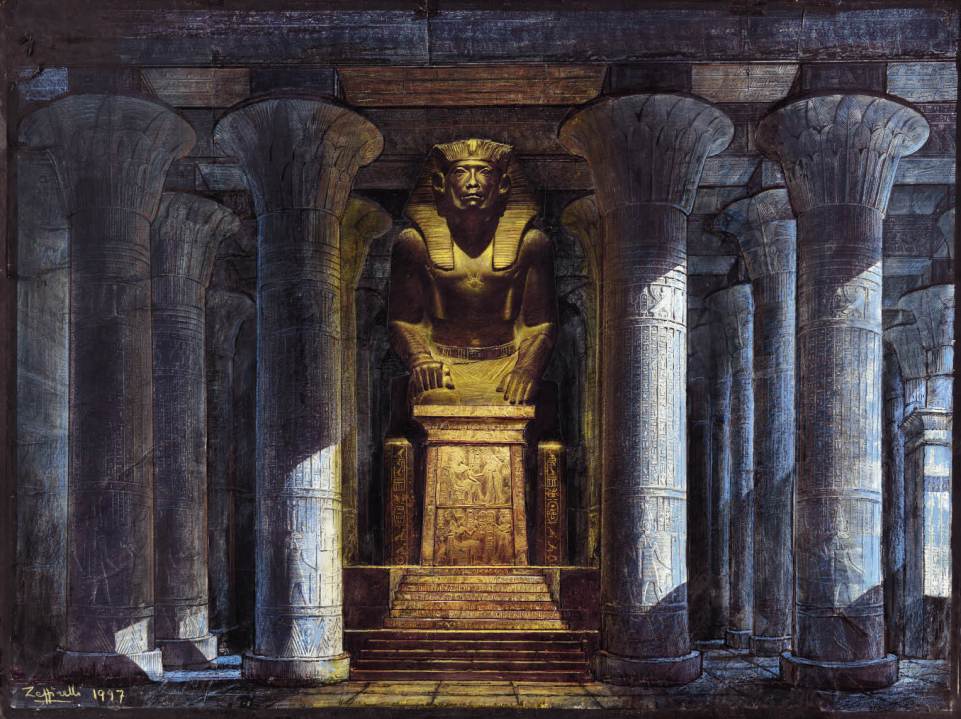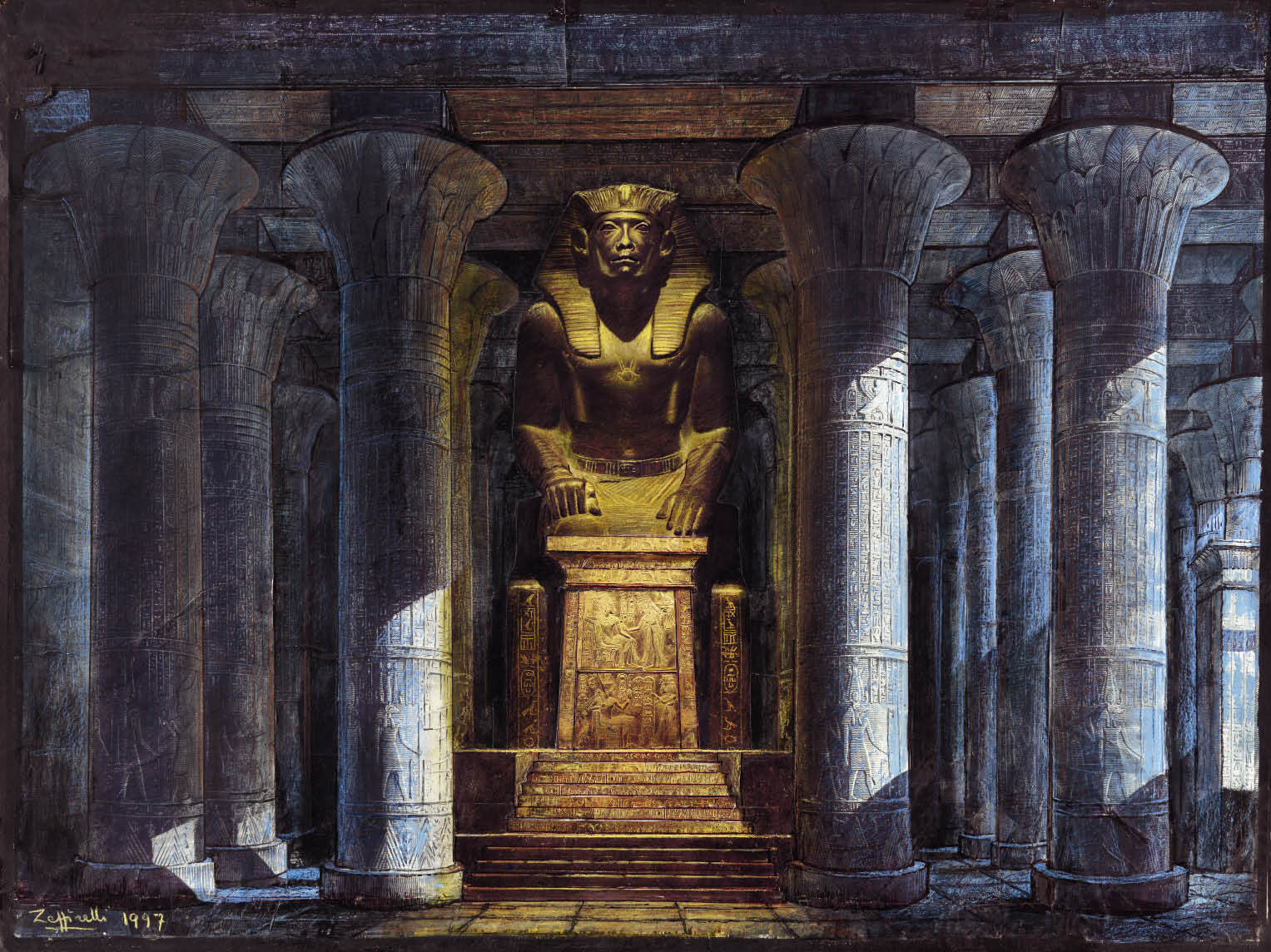‘Nothing succeeds like excess,’ quipped Oscar Wilde, and Franco Zeffirelli’s production of Aida at La Scala, Milan in 2006 bears him out: for sheer jaw-dropping, applause- garnering theatrical bling, I have never seen anything like it and I doubt I ever will.
‘Nothing succeeds like excess,’ quipped Oscar Wilde, and Franco Zeffirelli’s production of Aida at La Scala, Milan in 2006 bears him out: for sheer jaw-dropping, applause- garnering theatrical bling, I have never seen anything like it and I doubt I ever will. People talk of empty spectacle, but this was full, full to the brim, exploding with colour, glittering with gilt, and jam-packed with near-naked extras. Astonishingly, it didn’t collapse into a ghastly mess: each tableau was organised and marshalled with military precision, and the stage was left clear for the principals when the story needed to proceed. It was the work of a master.
This grand luxe volume, the weight of which will cause most coffee tables to buckle, certainly matches Zeffirelli’s preferred style. It provides a sumptuously produced and illustrated chronicle of a career spanning 60 years of directing and designing opera, plays and films, accompanied by essays by various hands that are tactful bordering on hagiographic, and certainly not to be trusted as objective assessments of a career attended by as many brickbats as bouquets. The selection of photographs is erratic — the early theatre productions seem more imaginatively represented than the signature opera productions — but there’s no doubt that it amounts to a visual treasure trove.
The book doesn’t bother itself with any awkward questions. A master, yes, but master of precisely what? Is he merely a decorator with genius of a rather vulgar kind, or a true neo-realist in the tradition of his patron Luchino Visconti? ‘I have tried in my productions to offer a fully rounded image of mankind,’ Zeffirelli claims, but that sounds like piety to me. I think he is a great maker of spectacle, but I can’t see where heart or humanity come into it.
Yet then I recall the times when he has hit the nail on the head. The 1964 Covent Garden production of Tosca, of course, built round Callas and Gobbi, and which is still going strong in Chicago: no other director in my experience has ever evoked the grandeur and oppression of Bourbon Rome more vividly than this did, and the sets offer brilliant solutions to various staging problems, including Tosca’s potentially comic final tumble from the roof of Castel Sant’Angelo.
Other great opera productions include the 1981 La Bohème for the Metropolitan Opera, where the bustle around Café Momus is managed with consummate skill, and the stunning 1970 Cavalleria Rusticana, also for the Met, where the church doors open and a whole community seems to flood out after Easter mass. His technique isn’t text-based — I don’t suppose he spends much time asking performers to explore motivation — but, golly, he knows exactly where to put everything on a stage to create maximum effect.
Opera suits Zeffirelli’s taste for extravagance and red-blooded melodrama, but it has only taken up half his working life. This book records 25 productions of plays, including fondly remembered, richly textured versions of Much Ado about Nothing and Saturday, Sunday, Monday at the National Theatre, in which actors such as Olivier, Maggie Smith, Joan Plowright and Robert Stephens flourished in settings which provided them with a solid social context without swamping them in period detail.
Sadly, I’m too young to have seen the 1960 Old Vic Romeo and Juliet, which Kenneth Tynan described as ‘a miracle’. Zeffirelli did, however, return to the play in a 1968 film which had as big an impact on a generation of starry-eyed teenagers (myself included) as Baz Luhrmann’s jazzier version did some 30 years later.
Without any wilful conceptualising, it was truly original in knocking genteel Englishness out of the picture and replacing it with the heat and dust of Verona, a brutal street culture, and two lovers who were visibly the age that Shakespeare specified. Olivia Hussey and Leonard Whiting in the title roles couldn’t speak the verse for toffee, but on film somehow their physical beauty was enough. And I still think that John McEnery’s Mercutio and Patricia Heywood’s Nurse are the best I’ve ever seen. Most of Zeffirelli’s film work is rubbishy, and even on stage he rarely attained tragic depth or emotional nobility. His genius is for operatic melodrama and tableaux vivants, but here, for a moment, his work touched a higher note of intensity.







Comments